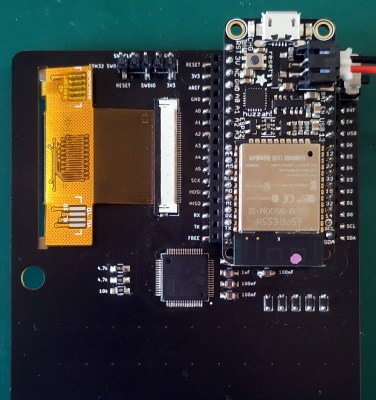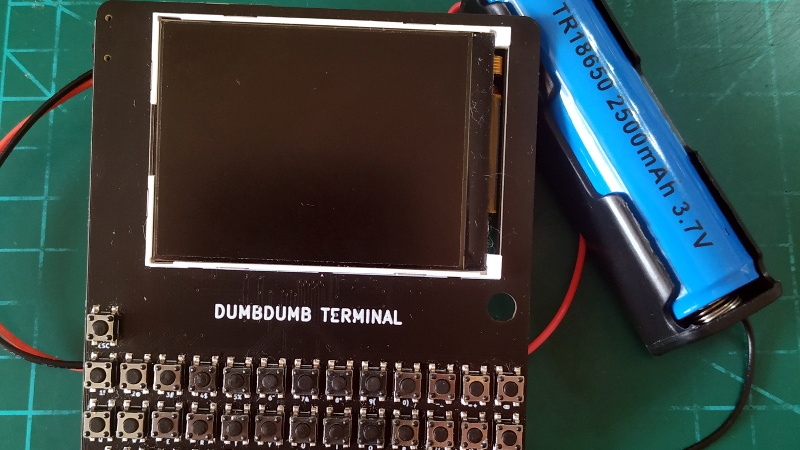Inspired by the good old days when your computer would boot directly into BASIC, [Le Roux Bodenstein] has created a handheld device he calls “DumbDumb” that can drop you into a MicroPython environment at a moment’s notice. If that doesn’t interest you, think of it this way: it’s a (relatively) VT100 compatible serial terminal with a physical keyboard that can fit in your pocket.
 Being essentially just a dumb terminal (hence the name), there’s actually not a lot of hardware on the board. Beyond the 320×240 NewHaven 2.4 inch LCD, there’s just an STM32G071R8 microcontroller and a handful of passives. Plus the 57 tactile buttons that make up the keyboard, of course.
Being essentially just a dumb terminal (hence the name), there’s actually not a lot of hardware on the board. Beyond the 320×240 NewHaven 2.4 inch LCD, there’s just an STM32G071R8 microcontroller and a handful of passives. Plus the 57 tactile buttons that make up the keyboard, of course.
The MicroPython part comes in thanks to the spot on the back of the board that accepts an Adafruit Feather Wing. In this case, it’s the HUZZAH32 with an ESP32 on board, but it could work with other variants as well. With the wide array of Feather boards available, this terminal could actually be used for an array of applications.
So even if fiddling around with MicroPython isn’t your idea of a good time, there’s almost certainly some interesting software you could come up with for a tiny network-attached terminal like this. For example, it might be just what you need to start working on that LoRa pager system.
















m5stack built this long ago.
still nice.
dumbdumb bring me gum gum?
+1
I’m interested but dumb
Pretty cool! I have a calculator (yes calculator) that runs micropython, it’d pretty cool as well (unlike the “traditional” programmer calculator languages)
Termux on Android.
“Word”!
Lack of physical buttons.
But those pcb buttons are also horribad.
They a’ight for thumb typing. Not any other kind of typing though.
These aren’t the usual tactile switches. I went with the ones that require the least amount of operating force I could find. It makes a huge difference.
In the good old days, an 8 bit computer with not much ram would turn on and give you a BASIC prompt. Now something similar can be done with two 32 bit CPUs, one of which is dual core. That’s some serious bloatware. I can’t wait until 64 bit microcontrollers become common. How many will be needed then for this task?
64 of course
MicroPython and 8-bit 1980s BASIC are in completely different leagues. But if this is too much power for you you can plug in a weaker, more minimalist Feather too, but you wouldn’t have WiFi and Bluetooth.
Or just run Lisp or Basic or Forth or whatever you want on the Feather.
How many chips did it take to make those 8-bit computers back in the day?
LORA ! yes, good idea. and meybe solar panel offgrid